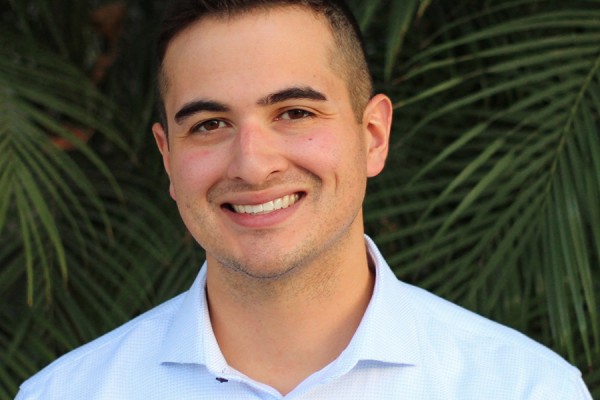 UWindsor professor Marcus Drover co-founded a new global forum to discuss inorganic chemistry.
UWindsor professor Marcus Drover co-founded a new global forum to discuss inorganic chemistry.
Finding himself shut out of the research conference season because of COVID-19 pandemic precautions, Marcus Drover came up with a virtual work around.
The UWindsor chemistry professor, along with Dalhousie University professor Saurabh Chitnis hosted the inaugural Global Inorganic Discussion Weekend on Sunday, March 29. More than 200 chemists attended the live discussion, which featured speakers from Canada and Germany and participants from around the globe.
“We didn’t know there would be such an appetite for it. But seemingly, people are hungry for something different,” says Dr. Drover.
Drover and Dr. Chitnis found they could host a discussion of up to 5,000 people using Blackboard, an institutional tool that most researchers already have access to for online teaching.
They devised a format giving 40 minutes to an established researcher, followed by two 20-minute slots for an early career researcher and either a PhD or post-doctoral student, wrapping up with a question-and-answer period.
“I’m pretty active on social media and once we figured out the logistics, we reached out using Twitter; my original tweet has been seen by more than 35,000 people,” says Drover. “Each year Canada hosts a chemistry conference that attracts thousands of people, allowing us to network and engage with our research counterparts, and the absence of events like these are a real loss to research and to connecting with others — we hope this virtual arena can help fill that void.”
Inorganic chemistry is a broad area of study. The first discussion consisted of researchers who are making materials and those preparing unique molecules that display interesting or new properties. For example, Lucie Nurdin, a PhD student from the University of Calgary, spoke about developing new molecules for ammonia oxidation, with an eye towards developing alternative fuels.
“I was a little stressed for the inaugural event, about slides not working or about problems transitioning from one speaker to another. You want to make sure that if you put on an event, you don’t disappoint; thankfully, it went seamlessly,” says Drover.
More recently, Kathleen Prosser, a post-doctoral researcher at the University of California San Diego presented her work focusing on the use the use of spectroscopic tools for the evaluation of copper complexes for anticancer applications, April 5 at the second weekend event. Drover says the virtual conference allowed Dr. Prosser to reach a wider audience to talk about her award-winning work than she would in a conventional conference setting.
They skipped Easter Sunday and when they resume on April 19, it will be in partnership with the Chemical Institute of Canada.
“This is a trial run and we are open to community feedback and advice,” says Drover. “Hopefully this will provide a small mechanism to celebrate our advances in inorganic chemistry while fostering engagement.”
Anyone is welcome to participate and there are no associated fees. With permission of the speakers, they record the session and leave it online for 48 hours so people in different time zones, or those who may get interrupted by small children at home, can resume watching later.
For details on upcoming sessions, follow Drover on Twitter using the handle @marcusdrover, hashtag #gidw2020, or go to the Virtual Symposia Series website.
—Sara Elliott
